Security News
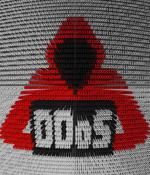
The LockBit ransomware group last week claimed responsibility for an attack on cybersecurity vendor in June. LockBitSupp, the public face of LockBit that interacts with companies and cybersecurity researchers, told Shukuhi that the group's data leak site was getting 400 requests a second from more than 1,000 servers and that the group promised to add more resources to the site and to "Drain the ddosers money," he wrote.
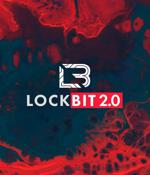
The LockBit ransomware operation's data leak sites have been shut down over the weekend due to a DDoS attack telling them to remove Entrust's allegedly stolen data. Soon after they started leaking data, researchers began reporting that the ransomware gang's Tor data leak sites were unavailable due to a DDoS attack.

This post was originally published on August 18th. The LockBit ransomware gang has claimed responsibility for the June cyberattack on digital security giant Entrust. Today, security researcher Dominic Alvieri told BleepingComputer that LockBit had created a dedicated data leak page for Entrust on their website, stating that they would publish all of the stolen data tomorrow evening.

The LockBit ransomware gang has claimed responsibility for the June cyberattack on digital security giant Entrust. Last month, BleepingComputer broke the story that Entrust suffered a ransomware attack on June 18th, 2022.
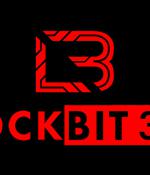
A threat actor associated with the LockBit 3.0 ransomware-as-a-service operation has been observed abusing the Windows Defender command-line tool to decrypt and load Cobalt Strike payloads. "Once initial access had been achieved, the threat actors performed a series of enumeration commands and attempted to run multiple post-exploitation tools, including Meterpreter, PowerShell Empire, and a new way to side-load Cobalt Strike," researchers Julio Dantas, James Haughom, and Julien Reisdorffer said.
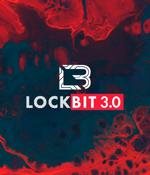
A threat actor associated with the LockBit 3.0 ransomware operation is abusing the Windows Defender command line tool to load Cobalt Strike beacons on compromised systems and evade detection by security software. Security solutions have become better at detecting Cobalt Strike beacons, causing threat actors to look for innovative ways to deploy the toolkit.
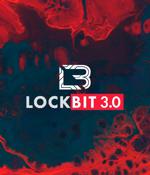
A threat actor associated with the LockBit 3.0 ransomware operation is abusing the Windows Defender command line tool to load Cobalt Strike beacons on compromised systems and evade detection by security software. Security solutions have become better at detecting Cobalt Strike beacons, causing threat actors to look for innovative ways to deploy the toolkit.

Cybersecurity researchers have reiterated similarities between the latest iteration of the LockBit ransomware and BlackMatter, a rebranded variant of the DarkSide ransomware strain that closed shop in November 2021. The new version of LockBit, called LockBit 3.0 aka LockBit Black, was released in June 2022, launching a brand new leak site and what's the very first ransomware bug bounty program, alongside Zcash as a cryptocurrency payment option.

Italian authorities are investigating claims made by the LockBit ransomware gang that they breached the network of the Italian Internal Revenue Service. LockBit claims they stole 100 GB of data that will be leaked online if the Italian tax agency doesn't pay a ransom demand until August 1st. The Italian revenue agency shared an official statement on its website regarding "The alleged theft of data from the tax information system," saying that it requested more info from Sogei SpA, a Ministry of Economy and Finance public company that manages the financial administration's technological infrastructure.

The LockBit ransomware crew is claiming to have stolen 78GB of data from Italy's tax agency and is threatening to leak it if a ransom isn't paid by July 31.If information was stolen, the tax agency would only be the latest in an expanding list of victims of LockBit.